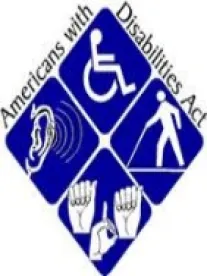In a new federal lawsuit in the U.S. District Court for the Eastern District of Missouri, Whittaker v. America's Car-Mart, Inc., the plaintiff is alleging his former employer violated the Americans with Disabilities Act (ADA) when it fired him for being obese. Plaintiff Joseph Whittaker claims the company, a car dealership chain, fired him from his job as a general manager last November after seven years of employment even though he was able to perform all essential functions of his job, with or without accommodations. He alleges “severe obesity … is a physical impairment within the meaning of the ADA,” and that the company regarded him as being substantially limited in the major life activity of walking.
The EEOC has also alleged morbid obesity is a disability protected under the ADA. In a 2011 lawsuit filed on behalf of Ronald Katz, II against BAE Systems Tactical Vehicle Systems, LP (BAE Systems), the EEOC alleged the company regarded Mr. Katz as disabled because of his size and terminated Katz because he weighed over 600 lbs. The suit alleged Mr. Katz was able to perform the essential functions of his job and had received good performance reviews. The case was settled after BAE Systems agreed to pay $55,000 to Mr. Katz, provide him six months of outplacement services, and train its managers and human resources professionals on the ADA. In a press release announcing the settlement, the EEOC said, “the law protects morbidly obese employees and applicants from being subjected to discrimination because of their obesity.”
Similarly, in 2010, the EEOC sued Resources for Human Development, Inc. (RHD) in the U.S. District Court for the Eastern District of Louisiana, for firing an employee because of her obesity in violation of the ADA. According to the suit, RHD fired Harrison in September of 2007 because of her severe obesity. The EEOC alleged that, as a result of her obesity, RHD perceived Harrison as being substantially limited in a number of major life activities, including walking. Ms. Harrison died of complications related to her morbid obesity before the case could proceed.
RHD moved for summary judgment, arguing obesity is not an impairment. The court, having reviewed the EEOC's Interpretive Guidance on obesity, ruled severe obesity (body weight more than 100% over normal) is an impairment. The court held that if a plaintiff is severely obese, there is no requirement that the obesity be caused by some underlying physiological impairment to qualify as a disability under the ADA. The parties settled the case before trial for $125,000, which was paid to Ms. Harrison’s estate.
In June 2013, the American Medical Association (AMA) declared that obesity is a disease. Although the AMA’s decision does not, by itself, create any new legal claims for obese employees or applicants under the ADA, potential plaintiffs are likely to cite the new definition in support of ADA claims they bring. In light of these recent developments, obesity related ADA claims will likely become more common.





 />i
/>i

